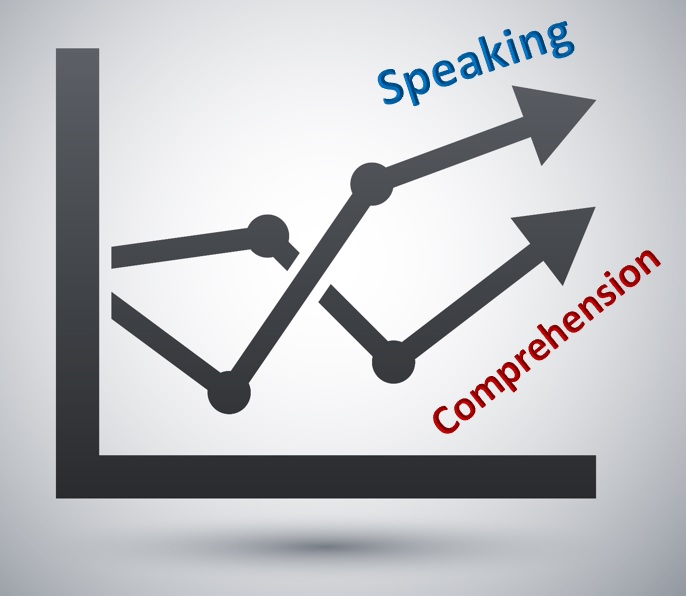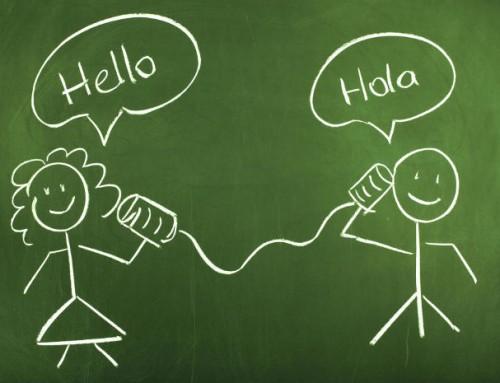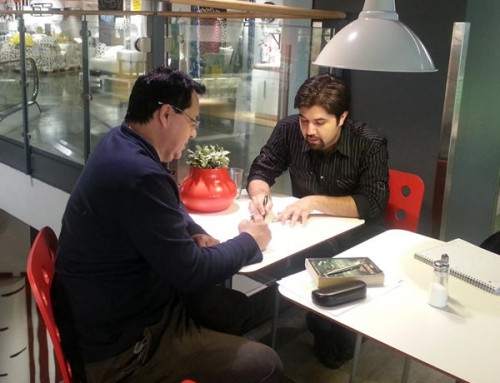If someone is familiar with a foreign language or perhaps interested in learning it, it’s most likely because he often hears it spoken by friends and family members…or he hears it in the workplace or in the community. He hears these conversations but he does not participate in them…and no one expects him to. He’s just a listener.
Naturally, he hears the same common words and phrases and begins to pick up their meaning. Some of these words are similar to their English equivalent, so he begins to realize there are many words in the foreign language that he can recognize and even pronounce.
This passive learning continues for a period of time, perhaps even for years, with no conscious effort on his part to actually study or learn the language. He just keeps picking up words and phrases. He even says them on occasion, especially the ones that are advantageous to him. He learns how to say “I like this” to the mother-in-law who often serves him delicious food. Shortly after, he learns how to say “I want more” and “You look beautiful.”
The language itself becomes a common topic of conversation with others…how much of it can he understand and speak. His answer to this question is a common one. It’s the inevitable result of extensively hearing a foreign language without a matching attempt to learn it. His reply:
“I can understand it more than I can speak it.”
That’s probably true. If all he’s ever done is hear another language…with no real attempt to put sentences together, it only makes sense that he’ll understand it better than he can speak it.
On a side note, to assure you that I know what I’m talking about, I’ll have you know that I’m speaking from experience on this matter. Early this year I married my wonderful Romanian wife. I’ve accepted that until I learn to speak Romanian, I will forever be asked by her legion of Romanian friends and family members about when I will learn their language. But that’s another subject for another post.
Back to the other guy who understands the foreign language more than he can speak it…all of this changes the moment he begins to study. This is when everything is flipped. Until now, he’s only experienced the occasional droplets of knowledge that fell on him during social get-togethers. Now, with a book and a teacher in front of him, he’s suddenly surrounded by a flood of information that is surging into his brain.
Page after page, list after list and verb after verb…the language is presented to him in a variety of contexts in which his new vocabulary is used. While sitting in a classroom, he learns how to order at a restaurant, how to book a flight at the airport and the phrases for several other hypothetical situations which may or may not actually occur.
As he listens to tapes, completes exercises and practices pronunciation, the new words circulate at the forefront of his mind. His brain is constantly repeating them. Under his breath, he begins to speak to himself in the foreign language about everything he’s doing and observing…simply for the practice: Son las ocho y media (It’s 8:30), Estoy manejando a la oficina (I’m driving to the office).
It isn’t long before the man realizes he’s now able to speak much more than he’s able to understand. He has a basic understanding of many words and he can use them, but he still hasn’t spoken or learned them in all their nuances or in other tenses. He can say that he speaks Spanish but hasn’t yet learned to say that he would’ve spoken Spanish, for example.
He’s probably heard these advanced levels of the language on many occasions but lacked the basic knowledge of the words to know what was being said. These are the in-depth conversations that he used to ignore because he didn’t have a clue. But now he has many clues. He has drawers and drawers of vocabulary in his mind because he has studied them…he was exposed to them in the many exercises he completed.
The language that was foreign to him is now familiar. He now recognizes several words in fast-paced conversations that were once meaningless to him. He begins to understand what his teacher has known all along: his increasing ability to speak the language will continue to pull forward his ability to understand it. I say “pull” because it will be behind. For as long as he actively studies and speaks the language, his ability to speak it will continually outpace his comprehension.
This imbalance is not something to be corrected…but rather, taken advantage of. Read as many articles as you can. Write stories. Complete exercises. Consume vocabulary lists and speak, speak, speak. It all contributes to your comprehension of the foreign language. It may always be trailing your ability to speak it, but if all your skills are moving forward, then what difference does it make? The only thing that matters is progress: study, speak, understand, repeat.
JG








Leave A Comment